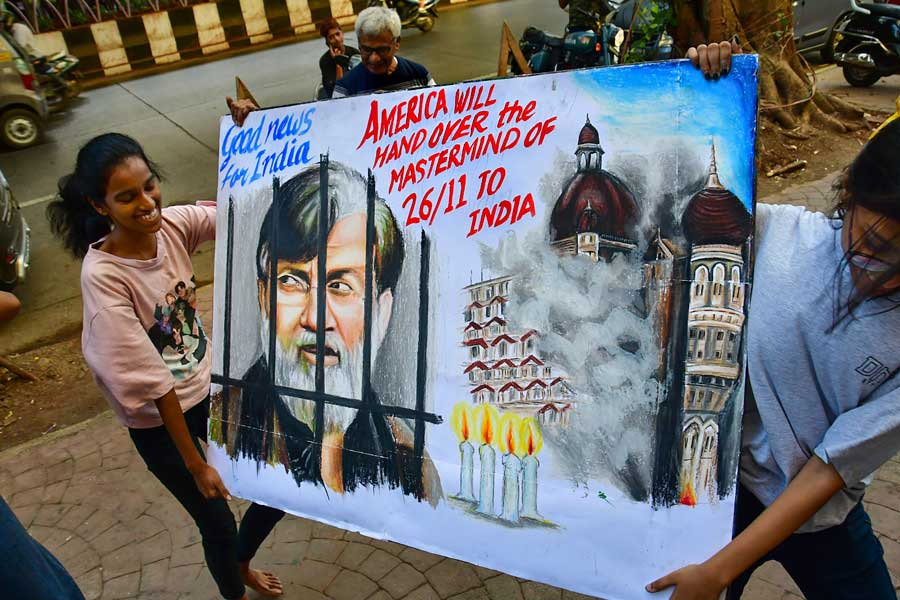UNITED NATIONS, Aug 22: Terrorism is borderless and the United Nations, as well as the international community, need to put their weight behind ending the scourge, a survivor of the 26/11 Mumbai terror attacks Karambir Singh Kang said as the UN paid tributes to terror victims globally.
The UN General Assembly has established August 21 as the International Day of Remembrance of and Tribute to the Victims of Terrorism.
The day honours, remembers and pays tribute to all victims and survivors of terrorism across the world, highlighting the importance of global solidarity and ensuring their stories and experiences are not forgotten.
This year, the day focused on the theme ‘Legacy: Finding Hope and Building a Peaceful Future’.
“Terrorism is borderless. It can happen anywhere, anytime. United Nations needs to pull its weight on some of these matters which globally affect all of us,” Kang said at a special virtual event organised by the UN Monday to mark the 6th commemoration of the International Day of Remembrance of and Tribute to the Victims of Terrorism.
“It’s important that we have all the countries to cooperate and put an end to this scourge. It’s not easy. It’s easier said than done. But if there is resolve, anything can be done,” Kang said.
Kang, who was General Manager of the Taj Mahal Hotel in Mumbai when the 26/11 terror attacks occurred, lost his wife and two sons in the barbaric attack. He and his team have received global accolades for saving many guests during the terror attacks.
“My family was in the hotel on the top floor. That’s where we were temporarily living. They could not escape,” Kang says in the virtual event, visibly choking up.
In the video message, Kang spoke about the harrowing tragedy that unfolded when 10 Pakistani terrorists of the Lashkar-e-Taiba unleashed mayhem and horror in Mumbai. He has shared his experiences on various global platforms and is a vocal proponent of global support and action for victims and survivors of terror attacks.
Kang has spoken in the ‘Call to Action’ at the first United Nations Global Congress of Victims of Terrorism in 2022 and at the dedication ceremony of the United Nations Victims of Terrorism Solidarity Tree at UN Headquarters in New York in June 2023. “During the attack, my wife and two young sons, who were at the hotel could not be saved. In an instant, my whole world fell apart,” Kang had said in his remarks at the tree dedication ceremony that was held on the eve of Prime Minister Narendra Modi’s visit to the US.
The solidarity tree is planted on the Northeast Lawn of the UN headquarters right behind the bust of Mahatma Gandhi, which was a gift of India to the UN and installed during India’s Presidency of the Security Council in December 2022.
Kang has recounted that on the evening of the attack, there were 2,000 people at the Taj hotel, including 400 of his staff members. “In the ensuing mayhem that continued for three days, we lost over 30 lives of our guests and staff members.”
Kang and his staff, with the help of a few local policemen, were able to save over 1,900 lives that night before help came.
A total of 166 people were killed in the 2008 Mumbai terror attacks in which 10 Pakistani terrorists laid a more than 60-hour siege, attacking and killing people at iconic and vital locations of Mumbai.
UN Secretary-General Antonio Guterres said the international day pays tribute to the “extraordinary” work of the victims and survivors of terror attacks who have resolved to use their experiences to bring about change. He called on people to commit to supporting victims and survivors to “amplify their voices to work together to ensure that the lives taken and changed by terrorism are never forgotten.”
As part of the activities to mark International Day, the United Nations Office of Counter-Terrorism (UNOCT) launched the ‘Legacy Project’, a documentary gallery on Instagram featuring victims and survivors of terrorism from across the world who share their stories.
The Legacy Project seeks to pay tribute to those whose lives have been lost or forever transformed by terrorism and to reach out to new generations to deepen and transform their understanding of the long-lasting impact of terrorism.
Among the stories highlighted in the interactive Legacy Gallery is that of Nidhi Chaphekar from India, a survivor of the ISIS bombing at Zaventem Airport in Brussels, Belgium in March 2016.
She was a cabin manager for the Indian airline Jet Airways. Chaphekar became the face of the victims of the terror attack as a photograph, showing her slumped on a chair in the airport, her stunned face bloodied and covered in dust and her yellow Jet Airways uniform blazer ripped apart, showcased to the world the horror of the attack and the ordinary citizens impacted by it.
An accompanying exhibition currently on display in the Visitor’s Lobby of the United Nations Headquarters here features 17 life-size images of victims and survivors of terrorism. Showcasing their ‘Memories’ through meaningful personal objects, the exhibit provides a snapshot of the resilience and legacy of each victim and survivor of terrorism.
This year also marks the 20th anniversary of the bomb attack on the Canal Hotel in Baghdad, Iraq, on August 19 2003, which killed 22 UN staff and humanitarian aid workers, including the United Nations Special Representative of the Secretary-General for Iraq, Sérgio Vieira de Mello.
Victims and survivors of terrorism from Uganda, the United States and the United Nations also shared their experiences during the virtual event. (AGENCIES)


